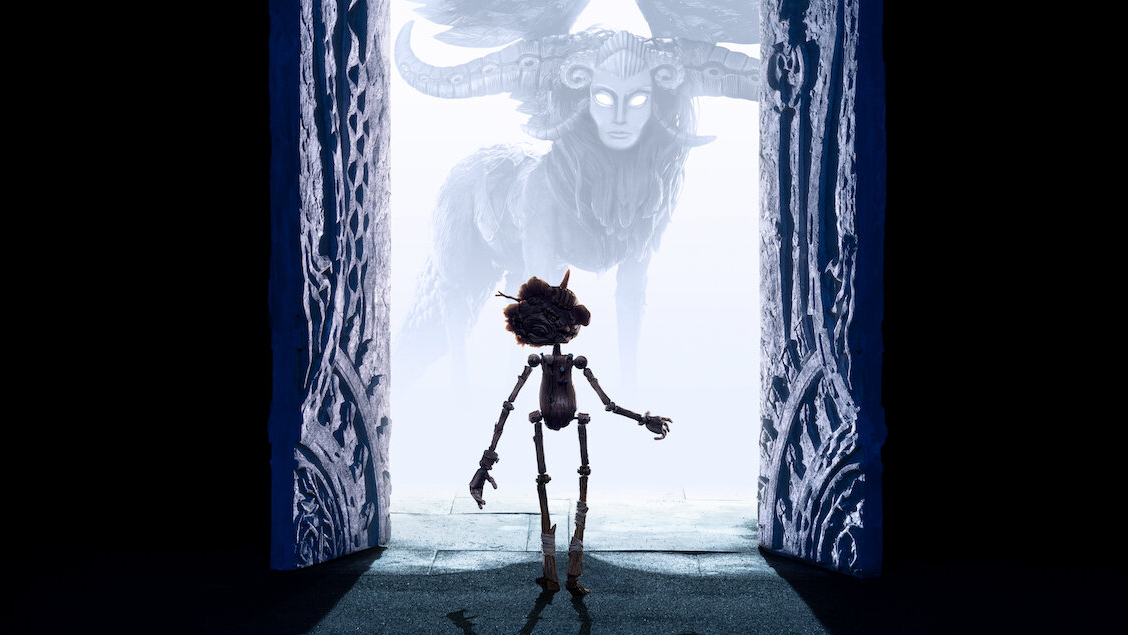
For all its serialized success, Netflix has a patchy track record when it comes to feature-length productions bearing the Netflix Original moniker.
Granted, our pick of the best Netflix movies does contain a handful of Netflix-produced gems – All Quiet on the Western Front, The Good Nurse and The Wonder count among the streamer's recent wins – but in the grand scheme of its movie-making output, Netflix has a far lower hit rate than, say, Apple TV Plus (which pipped Netflix to the Best Picture Oscar with only its eighth original film, CODA, in 2022).
Thank goodness, then, for Guillermo del Toro’s Pinocchio. After enjoying a brief theatrical run in select cinemas, the Pan's Labyrinth director’s stop-motion adaptation of Carlo Collodi's beloved 1883 fairytale is now streaming on Netflix – and it proves, once and for all, that betting on creativity almost always pays off.
Set in 1930s Italy during Mussolini’s fascist regime, the darkness of this Pinocchio’s on-screen story is matched only by the development hell its production endured off it. Del Toro first announced plans to adapt Collodi's centuries-old tale way back in 2008, but the project remained in limbo for more than a decade until screenwriter Patrick McHale was brought on board as co-writer in 2017. Production was again suspended for lack of studio backing a year later, before Netflix stepped in to finance the movie in 2018 (in a manner akin to the company's resuscitation of Martin Scorsese’s The Irishman).

Cut to 2022, and del Toro’s long-held vision has finally made it to the screen, albeit saddled with new meaning for the Mexican director following the recent passing of his mother (“this was very special for her and me,” he told audiences at Pinocchio’s world premiere, which took place at the London Film Festival just one day after she died).
Make no mistake: this Pinocchio still bears the hallmarks of Collodi’s classic story. But its central conceit about a wooden puppet who longs to become a real boy is instead wrapped up in much darker themes of war and death. Geppetto (David Bradley) is a once-loving father who succumbs to drunkenness following the tragic passing of his son. Jiminy Cricket (Ewan McGregor) is a self-centered writer who hopes to use the story of Pinocchio’s creation to become rich and famous. The Blue Fairy (Tilda Swinton) is… not the same Blue Fairy as you’ve come to know. And, as mentioned, the whole thing takes place against a backdrop of an Italy gripped by fascism.
In other words, it’s difficult to describe del Toro’s Pinocchio as a children’s film – unless you’re keen to teach your kids about the impermanence of life and the inevitably of death.
Get daily insight, inspiration and deals in your inbox
Sign up for breaking news, reviews, opinion, top tech deals, and more.
That’s not to say Pinocchio is a desperately gloomy affair, mind. This is still an utterly joyous adventure through beautifully rendered Italian towns, warm forests and wide open seas, with a spellbinding score from Alexandre Desplat that ranks among the The Shape of Water composer’s very best work. There is humor and heart to spare here – the relationship between McGregor’s Jiminy Cricket and newcomer Gregory Mann’s Pinocchio is a particular highlight – while a series of mostly excellent musical numbers keeps things feeling fresh throughout.

Above all, though, del Toro’s Pinocchio works because of how utterly original it is. Despite the familiarity of its source material, this is a movie that never once feels like something we’ve seen before. Even its animation style – which falls somewhere between Fantastic Mr. Fox and Team America – has a personality of its own, with messy edges and less-than-perfect movements left unedited to add tactility and weight to this entirely fictional world.
Not everything works to perfection. The film’s sound mixing is occasionally muddled and a song performed by Christoph Waltz’ nefarious Count Volpe is more jarring than enjoyable. But these are minor concessions in an otherwise masterful picture that earns its right to exist.
Del Toro’s Pinocchio soars where Disney’s comparatively unoriginal take on the same story fizzles. Netflix bosses have here gambled on the same originality that frequently propels the streamer’s series content to greatness, and they would be wise to continue doing so if they hope to see Netflix considered equal to Hollywood’s established movie studios in the future.

Axel is TechRadar's UK-based Phones Editor, reporting on everything from the latest Apple developments to newest AI breakthroughs as part of the site's Mobile Computing vertical. Having previously written for publications including Esquire and FourFourTwo, Axel is well-versed in the applications of technology beyond the desktop, and his coverage extends from general reporting and analysis to in-depth interviews and opinion. Axel studied for a degree in English Literature at the University of Warwick before joining TechRadar in 2020, where he then earned an NCTJ qualification as part of the company’s inaugural digital training scheme.